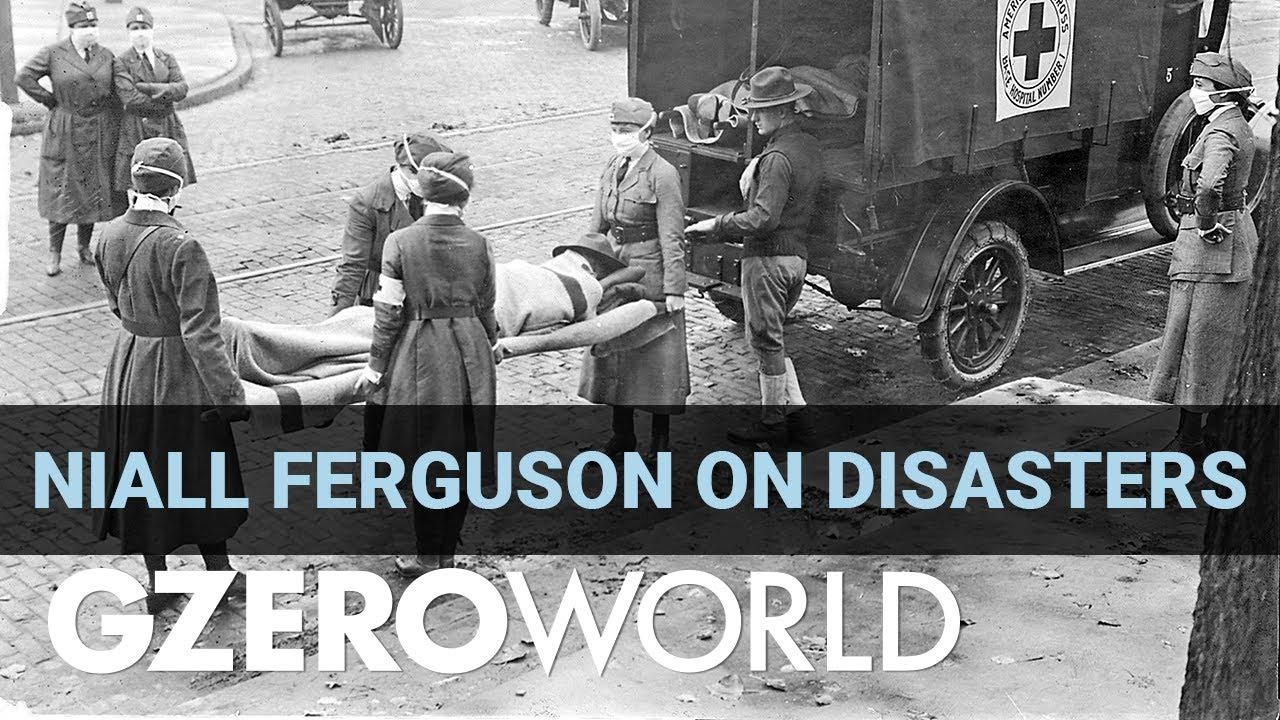GZERO World with Ian Bremmer
The surprising history of disaster

Predictable Disaster and the Surprising History of Shocks | Historian Niall Ferguson | GZERO World

COVID-19 was a global catastrophe that blindsided the world's wealthiest nations, and it's far from over. But as disasters go, it was hardly unprecedented. Humanity has a long history of failing to prepare for the worst, from volcanic eruptions to earthquakes to famines to shipwrecks to airplane crashes to financial depressions. But how do we get better at preventing such calamities from happening, and how many seemingly unavoidable "natural" disasters are actually caused by humans? On GZERO World, Ian Bremmer talks about all that and more with Stanford historian Niall Ferguson, who is just out with the perfect book for the topic, "Doom: The Politics of Catastrophe." Plus, a look at how one young Ugandan activist was literally cropped out of the global climate fight.
In this Quick Take, Ian Bremmer weighs in on the politicization of the Olympics after comments by Team USA freestyle skier Hunter Hess sparked backlash about patriotism and national representation.
100 million: The number of people expected to watch the Super Bowl halftime performance with Bad Bunny, the Puerto Rican superstar and newly minted Album of the Year winner at the Grammys.
Brazilian skiers, American ICE agents, Israeli bobsledders – this is just a smattering of the fascinating characters that will be present at this year’s Winter Olympics. Yet the focus will be a different country, one that isn’t formally competing: Russia.
Japanese Prime Minister Sanae Takaichi, president of the Liberal Democratic Party (LDP), appeals for a candidate during a street speech of the House of Representatives Election Campaign in Shintomi Town, Miyazaki Prefecture on February 6, 2026. The Lower House election will feature voting and counting on February 8th.
Japanese voters head to the polls on Sunday in a snap election for the national legislature’s lower house, called just three months into Prime Minister Sanae Takaichi’s tenure.